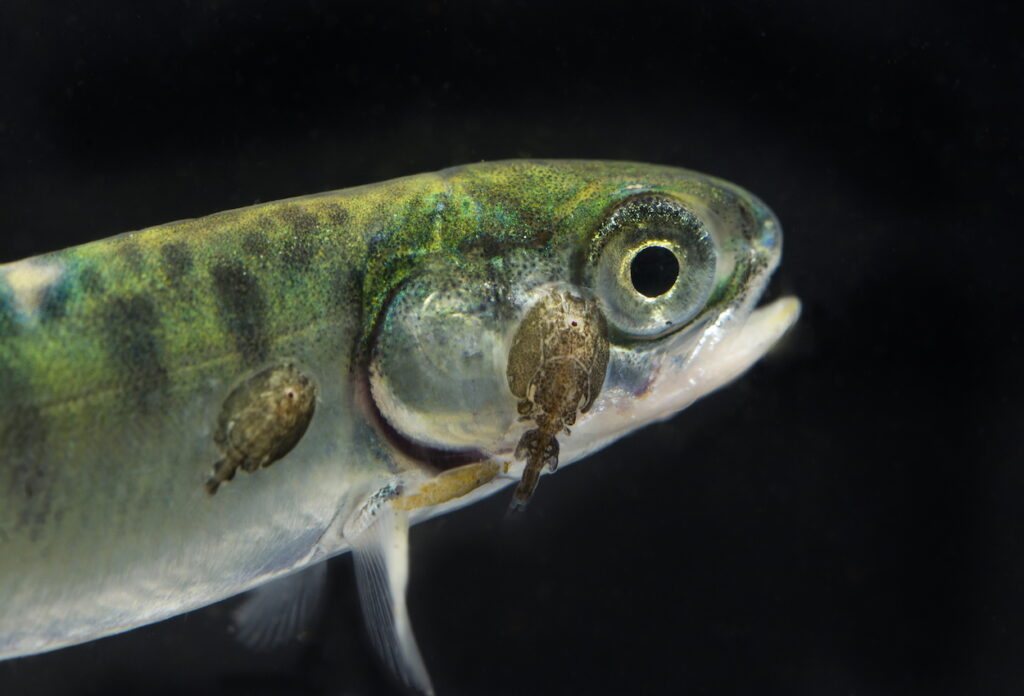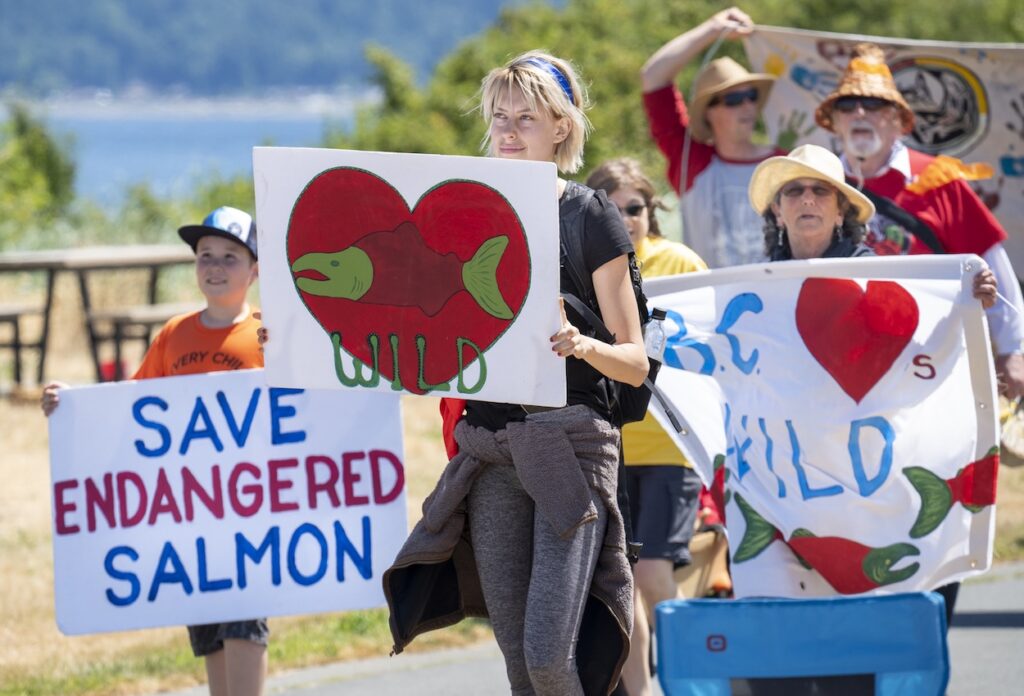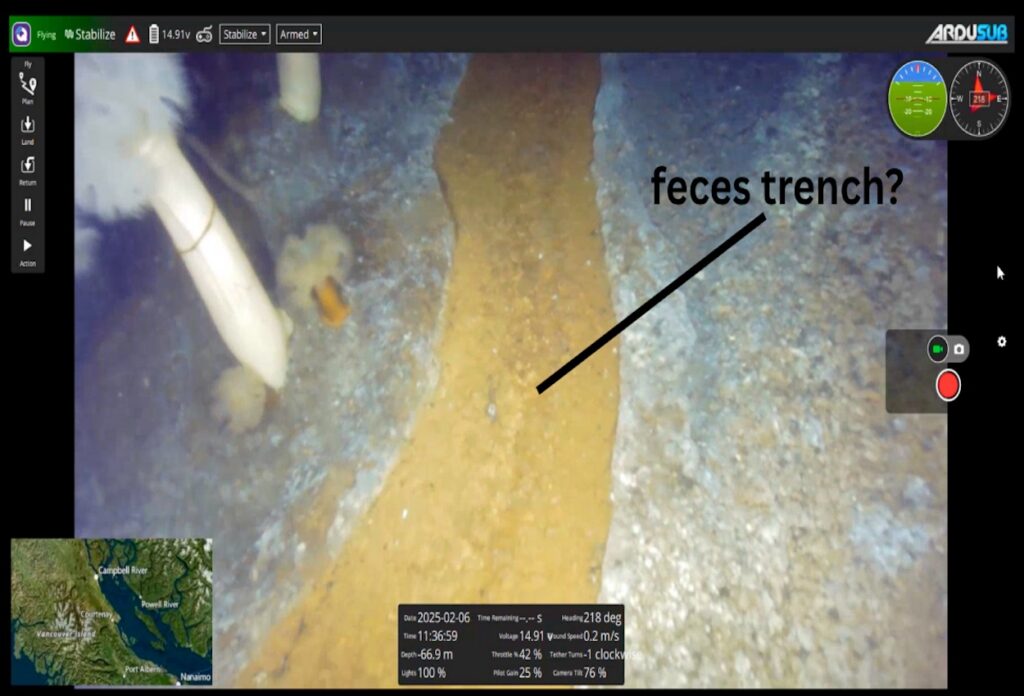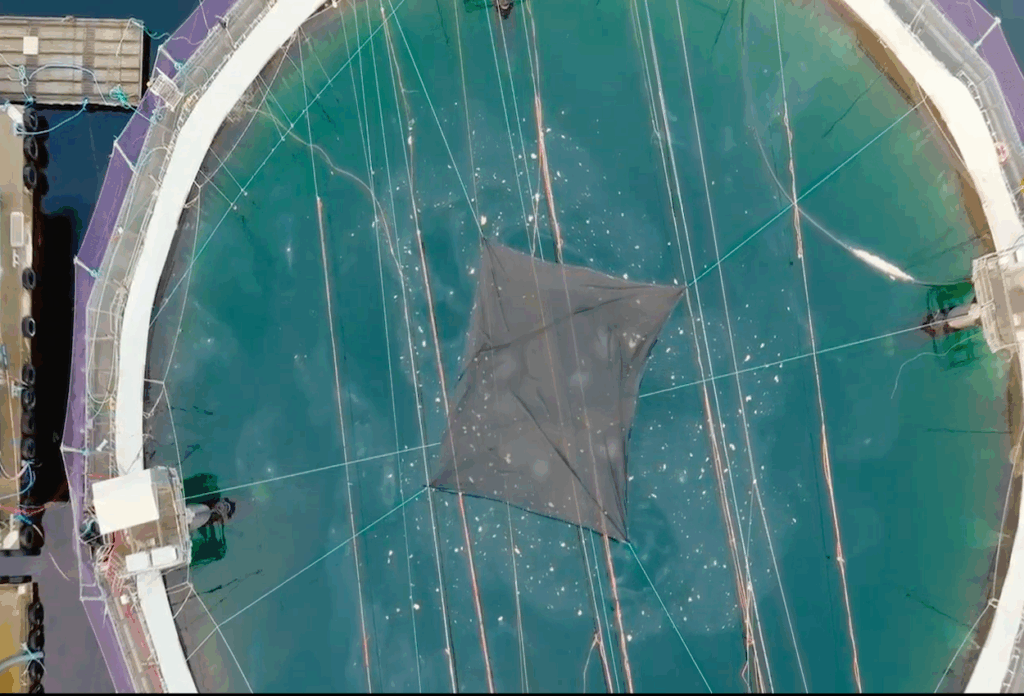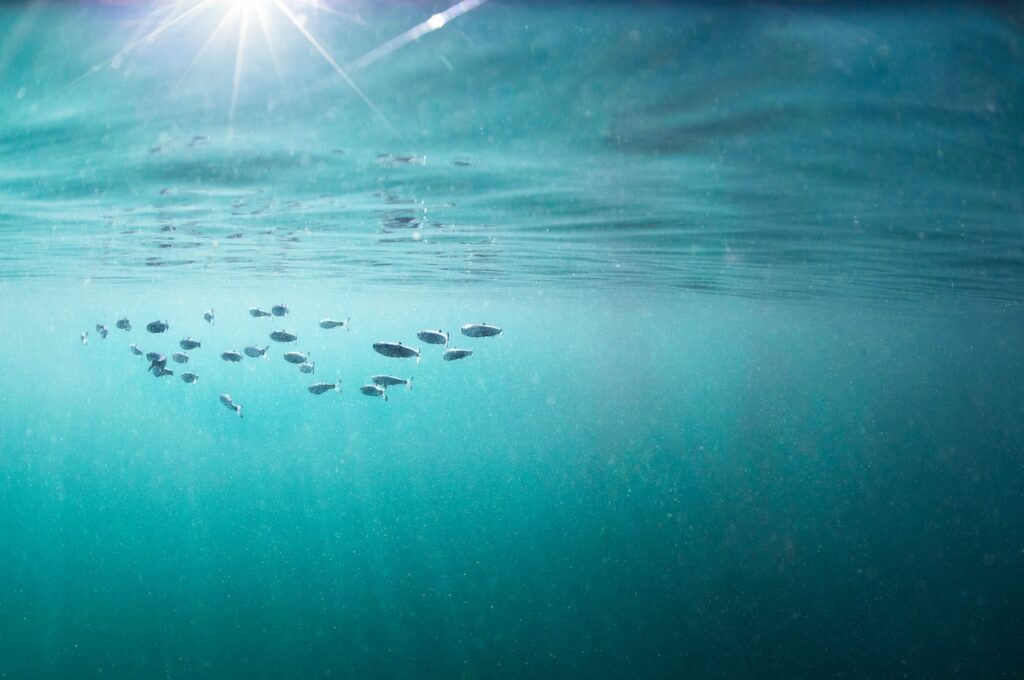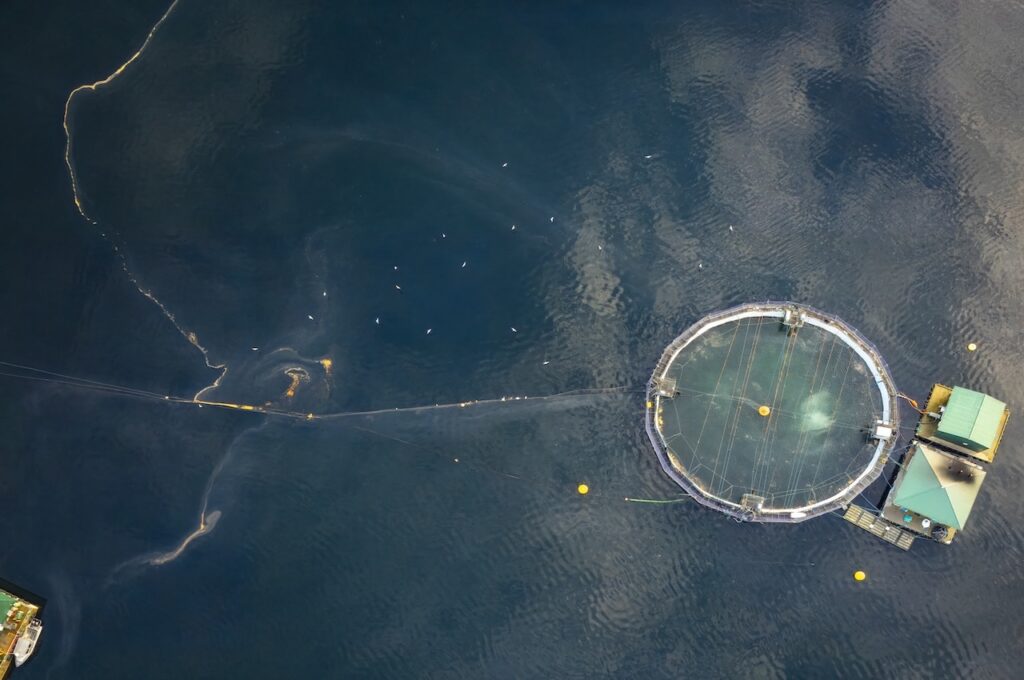The roots of Clayoquot Summer
Twenty-five years ago Tofino residents and Nuu-chah-nulth locals stood together in Sulphur Pass to prevent a road from being punched into the wildlands of northern Clayoquot Sound. The theme song of the blockade became Midnight Oil’s Beds are Burning. Campfire circles led to wild fantasies of the Oil playing live on the road, shutting the company down.
Fast-forward five years to Clayoquot Summer 1993, the largest act of civil disobedience in Canadian history. Midnight Oil played a show at the Peace Camp on a stage made of charred timbers from the Black Hole clearcut, with David Suzuki boogying down in the front row. Meanwhile hundreds of people, feeling their collective power, chose to remain seated on the road, and the loggers never did get through that day.
How did this happen? The answer is simple: we organized. Inspired by Redwood Summer in California (which was in turn inspired by Mississippi Summer, part of the civil rights struggles of the 1960s), we decided to focus on organizing mass protests.
The blockades of the late 80s and early 90s were small, dramatic and heroic. Although the actions were peaceful, activists became targets of logger and police violence. We blockaded in remote locations and were marginalized by the media. It was clear this was no way to succeed.
All hands on deck!
A strategic decision was made to move to Gandhian-style protest in accessible locations, so you didn’t need to be a tree climbing eco-hero to be a conscientiousness objector.
In the spring of 1992 a peaceful direct action trainer’s workshop was held. This provided a pool of trainers, making it possible for everyone participating in the blockades to take an on-site workshop. This was key to the ultimate success of the 1993 protests.
During the Clayoquot 1992 blockades the importance of remaining dignified and calm was emphasized. By summer’s end 70 people had been arrested—a new record!
In April 1993 the BC government announced their plan for Clayoquot Sound: two-thirds would be open for logging, and only one of the intact valleys would be protected. This decision was made without consulting First Nations, who were outraged.
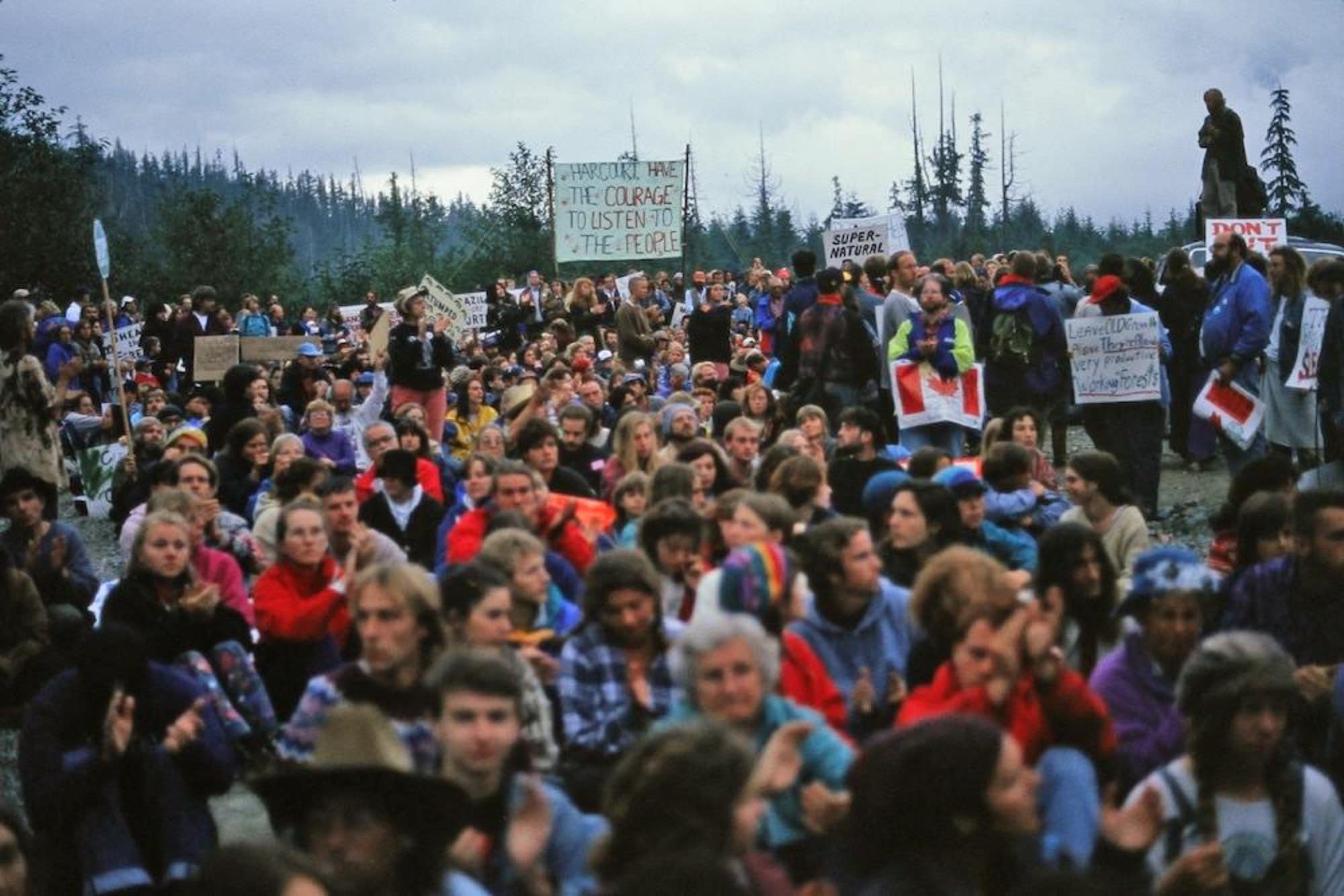
The Clayoquot Peace Camp
A dozen locals were hired to plan and execute Clayoquot Summer 1993. The Peace Camp, our base of operations for the summer, was established in the Black Hole, a horrendous burned-over clearcut. Most of the local organisers had been arrested in 1992 and could not go to the blockades, so a young upstart from Toronto named Tzeporah Berman was hired to manage affairs on the road.
The Camp grew rapidly and by mid-July the daily population was around two hundred. Dozens of flags flapped gaily in the breeze—one for every nation whose citizens had pitched a tent. A tree-planter’s cook-shack tent was donated, and volunteers created a kitchen capable of feeding 200 people, three times a day, with the huge volumes of food being donated. Every evening a general assembly would be called to plan the next day’s actions.
Each morning a motorcade would gather at dawn to drive to the Kennedy River bridge in time to greet the loggers heading to work with their RCMP escort. The court injunction making the blockades illegal was read, and those who were not able or willing to risk arrest would step aside. The arrests were peaceful and many passive resisters were carried to waiting busses to the cheers of their compatriots. It was all very intense and emotional, and by mid-morning it was back to camp for breakfast and another day of non-violence trainings, events and assemblies. By the end of Clayoquot Summer 1993, eight hundred and fifty six people had been arrested.
(Previously published in Watershed Sentinel).
